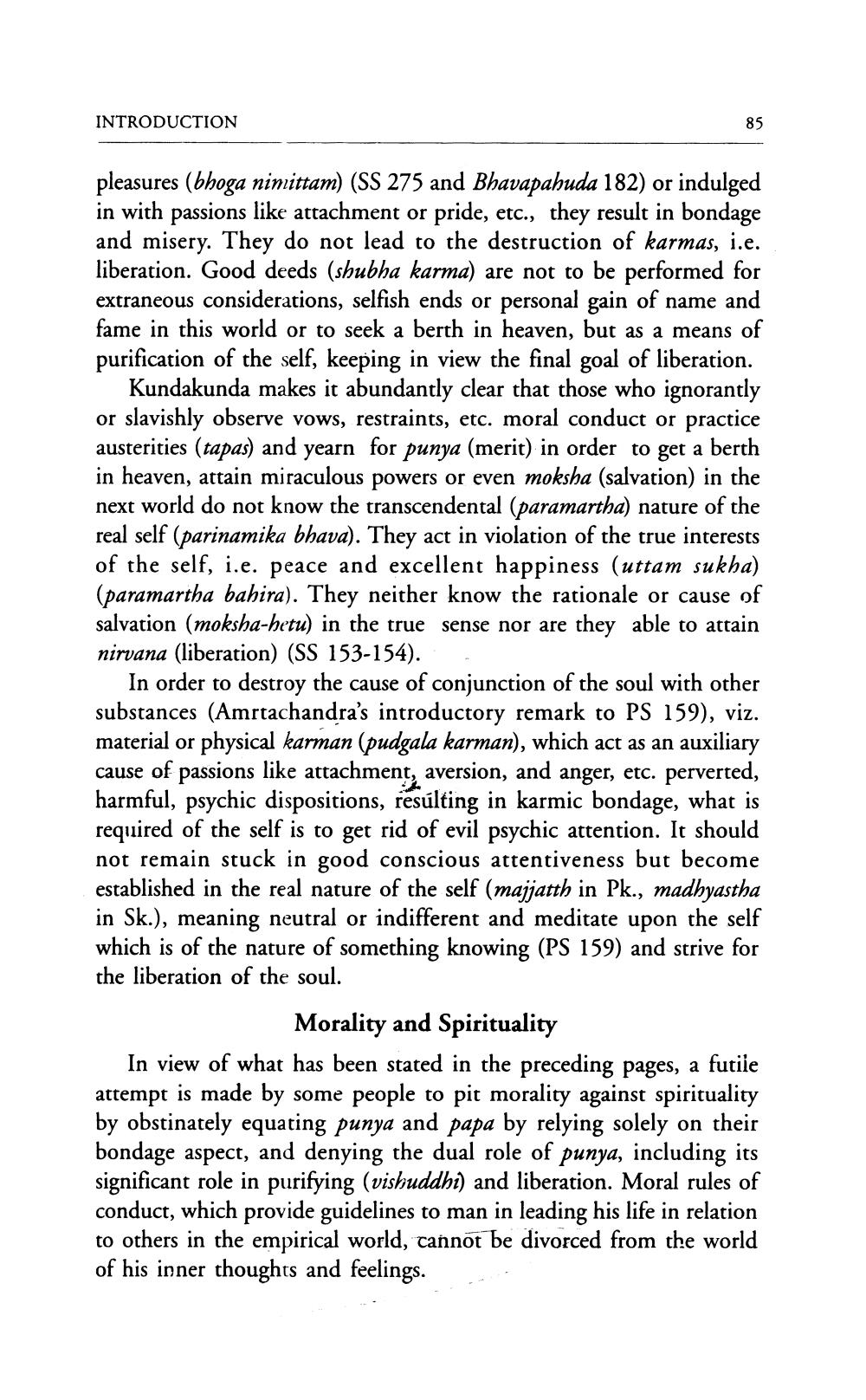________________
INTRODUCTION
pleasures (bhoga nimittam) (SS 275 and Bhavapahuda 182) or indulged in with passions like attachment or pride, etc., they result in bondage and misery. They do not lead to the destruction of karmas, i.e. liberation. Good deeds (shubha karma) are not to be performed for extraneous considerations, selfish ends or personal gain of name and fame in this world or to seek a berth in heaven, but as a means of purification of the self, keeping in view the final goal of liberation.
Kundakunda makes it abundantly clear that those who ignorantly or slavishly observe vows, restraints, etc. moral conduct or practice austerities (tapas) and yearn for punya (merit) in order to get a berth in heaven, attain miraculous powers or even moksha (salvation) in the next world do not know the transcendental (paramartha) nature of the real self (parinamika bhava). They act in violation of the true interests of the self, i.e. peace and excellent happiness (uttam sukha) (paramartha bahira). They neither know the rationale or cause of salvation (moksha-hetu) in the true sense nor are they able to attain nirvana (liberation) (SS 153-154). -
In order to destroy the cause of conjunction of the soul with other substances (Amrtachandra's introductory remark to PS 159), viz. material or physical karman (pudgala karman), which act as an auxiliary cause of passions like attachment, aversion, and anger, etc. perverted, harmful, psychic dispositions, resulting in karmic bondage, what is required of the self is to get rid of evil psychic attention. It should not remain stuck in good conscious attentiveness but become established in the real nature of the self (majjatth in Pk., madhyastha in Sk.), meaning neutral or indifferent and meditate upon the self which is of the nature of something knowing (PS 159) and strive for the liberation of the soul.
Morality and Spirituality In view of what has been stated in the preceding pages, a futile attempt is made by some people to pit morality against spirituality by obstinately equating punya and papa by relying solely on their bondage aspect, and denying the dual role of punya, including its significant role in purifying (vishuddhi) and liberation. Moral rules of conduct, which provide guidelines to man in leading his life in relation to others in the empirical world, cannot be divorced from the world of his inner thoughts and feelings.




